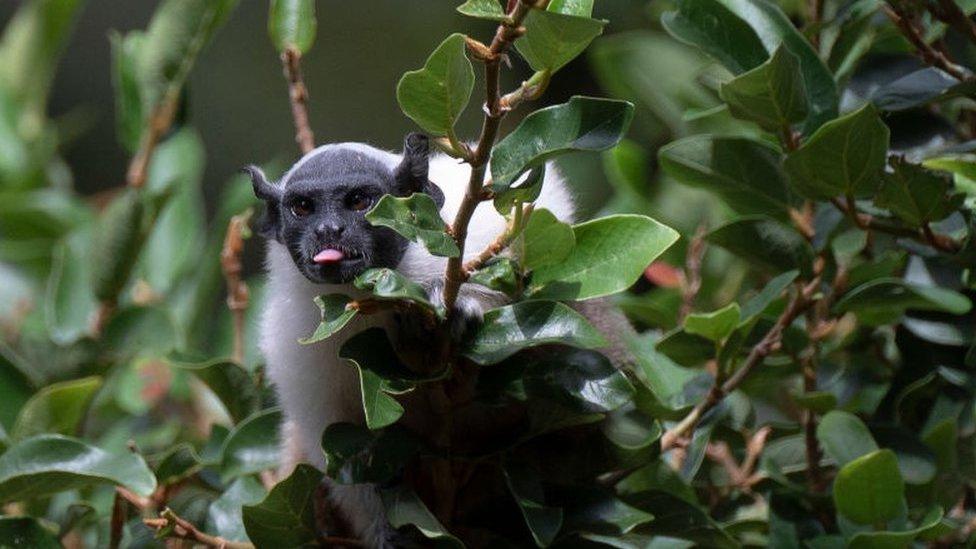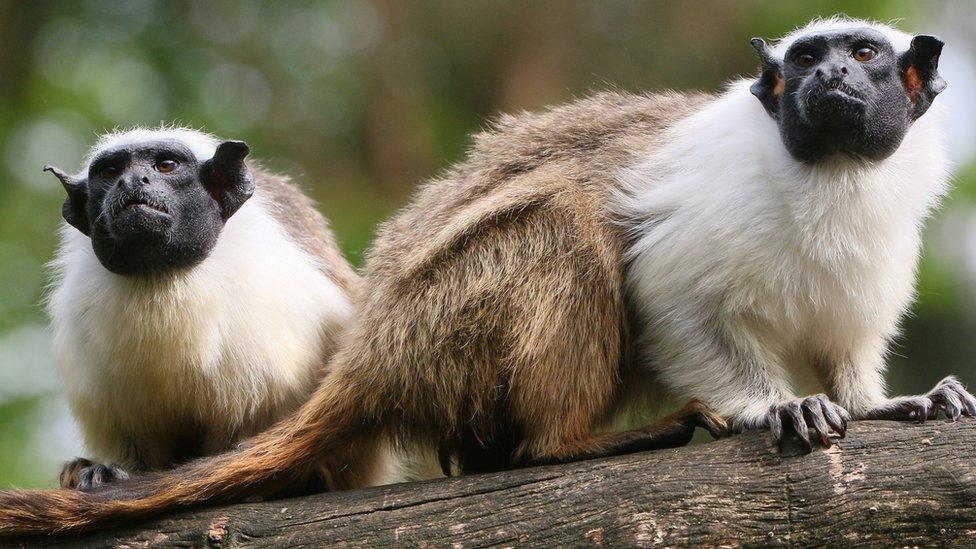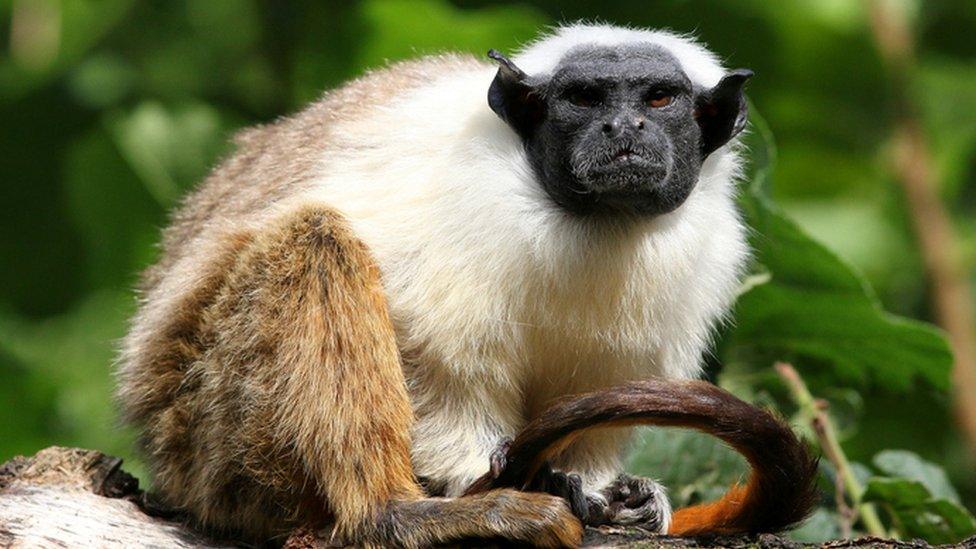Noise pollution: Monkeys are communicating with smells because of loud city noise
- Published

Pied tamarins are having to find new ways to communicate with each other, because of human noise
A species of monkey in Brazil is having to changing they way it communicates because of loud city noises.
Pied tamarin monkeys living just outside the city of Manaus in Brazil have started to communicate with each other using smells and scent, instead of by calls and noises.
The city is getting a lot bigger and spreading into the monkey's habitat, and noise from people and cars is getting a lot louder.
The pied tamarin is currently critically endangered, and experts are worried that the city's expansion is going to make things even harder for the monkeys.

The pied tamarin is a small monkey, around 20-28cm long, and usually weight about 400g.
It's mainly found just outside of Manaus in Brazil, in the Amazon rainforest.
They mainly eat fruit, insects, and small eggs.
The pied tamarin's habitat just outside of Manaus is slowly getting louder.
They have a small amount of space to live, and the noise makes it harder for them to communicate with each other.

This is Manaus in Brazil - it's close to the Amazon rainforest
Because of this, they have started scent marking. This is where animals leave a certain smell as a message to other monkeys.
Scientists have found that pied tamarin scent marking has increased at the same time that decibel levels have increased.
Decibel levels are how people measure sound - if they're higher, it means it's louder.
What does this mean?

The pied tamarin is already a critically endangered species
The team found that the increase in noise was down to of human-made sound, for example car or airport noise.
One of the researchers said that scent marking is not a good way for animals to communicate over long distances and means that different groups of pied tamarin could easily become very separated from each other.
They said it's impressive to see that tamarins have managed to adapt so quickly, but are concerned about the impact this will have on the species.
